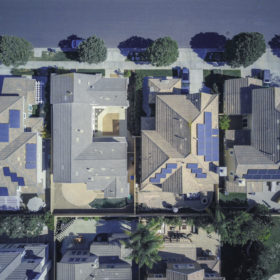The U.S. Department of Energy (DOE) announced $209 million in funding for 26 new laboratory projects focusing on electric vehicles, advanced batteries, and connected vehicles.
In announcing the awards, the department said that advanced, lithium-based batteries “play an integral role” in electric vehicles, stationary grid storage, and defense applications that will be critical to securing America’s clean energy future.
DOE also said that its Argonne National Laboratory launched the Li-Bridge, a new public-private partnership to bridge gaps in the domestic lithium battery supply chain.
The DOE said that the U.S. currently “relies heavily” on importing advanced battery components from abroad. Doing so exposes the nation to supply chain vulnerabilities that threaten to “disrupt the availability and cost” of these technologies.
The 26 national laboratory projects announced today will address four goals:
- Significantly reducing the cost and size of next generation battery technology
- Advancing extreme fast charging to allow for batteries to be fully charged in less than 15-minutes
- Mitigating potential grid impacts of tens of millions of vehicles being charged across the nation
- Streamlining cooperative vehicle-to-vehicle communications and controls that reduce energy use and emissions.
See the full list of project awards here.
Hear from DOE's Deputy Director Garrett Nilsen!
This content is protected by copyright and may not be reused. If you want to cooperate with us and would like to reuse some of our content, please contact: editors@pv-magazine.com.









Chinese company already flagged by SEC for their dependence on Chinese laws. Does the Sec. Granhole have a vested interest in this too? How much money is she making. This stinks to high heaven. If we only had a DOJ. Then someone would be in jail.